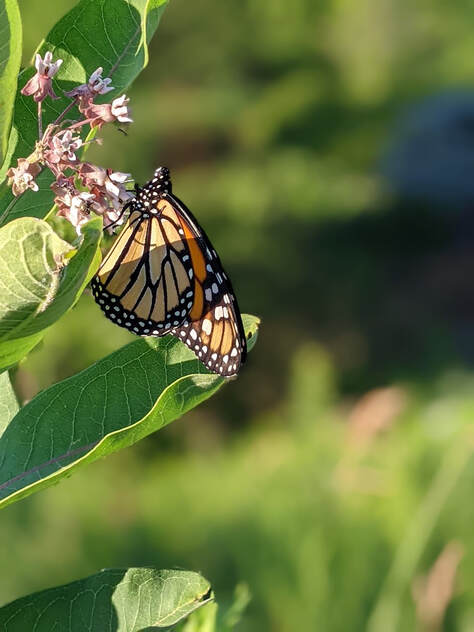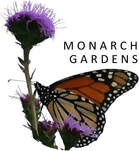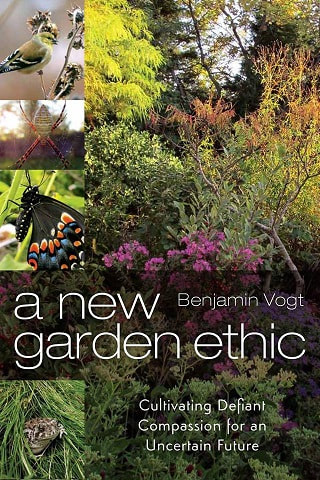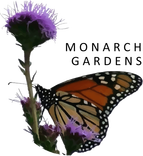Telling folks to go get some milkweed for their small foundation bed is like telling folks to get some wheat bread crust for dinner. Monarchs need an entire native plant community -- host plants AND nectar plants. And they need other interactions that occur in a dense, layered native plant community; interactions involving other species, interactions in the soil, interactions among the plants. Health and life is more than one genus of plants. And besides, there are many insect species at greater risk than monarchs, but we aren't planting for them.
My concern is folks will rush to plant milkweed and, like so many other of their garden plants, maroon them in a sea of wood mulch with plants spaced far apart. Milkweed, like most plants, did not evolve to grow by itself. Monarchs and milkweed need a plant community to thrive -- especially over vast stretches of a landscape, well more than a city can provide.
Monarchs also, most importantly above all else, need an end to burning fossil fuels as well as big agriculture as it's implemented now. Monarchs need MASSIVE systemic change to our society and culture at breakneck speed, not a "plant more milkweed" panacea that makes us feel better for a moment, but doesn't really practically address issues that will make a lasting difference for monarchs and so much more. Climate change is increasing occurrences of drought along the Mississippi flyway that stretches from Mexico to Canada, and it’s decimating fir trees in the overwintering grounds of the oyamel forest of central Mexico while also creating a risk of exposure to freak storms that bring cold rains and snows. And then there's the illegal logging.
I recently drove from the arrowhead of Minnesota to Des Moines, along the so-called I-35 Monarch Highway. There was a lot of mowing going on. In mid summer. About peak larvae action time. If we can't manage those small strips for wildlife rearing, what hope do we have in the monoculture fields beyond them?
Speaking of Iowa, it's at the center of monarch reproduction in summer (estimates are that around 38% of eastern U.S. monarchs come from the northern Midwest, the so-called corn belt and the largest slice of the pie). For those who don't know, over 99% of the tallgrass prairie is gone in Iowa and it's nearly as dire in neighboring states. Without those plant communities -- and the milkweed found within them -- what hope should we have?
This post is not to douse the flames of people rushing to spread the good news about milkweed -- most of us here already know the benefits of milkweed and native plants. But it is the idolatry over one charismatic butterfly species, and the subsequent narrow perspective on what the "solution" to "helping" them is, that becomes highly problematic if we're not willing or able to address the underlying or fundamental issues at play here. (And don't get me started on folks killing tussock moth larvae or milkweed beetles so there's more milkweed for monarchs to eat.)
No, you by yourself can't go convert 25% of Iowa from corn to prairie or get the U.S. to transition away from oil and coal. Yes, putting in more milkweed and a native plant garden in your suburban landscape is much more actionable and will get people talking / thinking (even though that can already feel like a mountain to climb for many -- what's native, what will work, what about the HOA, etc, all stuff we try to cover here and at the website as best we can).
What monarchs need is a revolution of compassion that draws a line against human privilege and supremacy, that says no more to this culture of waste and greed and violent colonization that's as suicidal as it is genocidal. And make no mistake, monarchs won’t vanish even if the two great migrations in North and Central America do (migration distances that many other butterfly species make around the world).
Don't just plant more milkweed. Call us all out on why we need more milkweed, more goldenrod, more aster, more bluestem, more coneflower, more prairie clover, more sedge. Call out our lawns. Call out our parking lots. Call out our farm fields. Call out our coal trains. Call out special interests that have taken over our system of government. Do what you can where you can -- a pot on an apartment deck, a front yard lawn, a YouTube channel, a farmer's market, a city council meeting, your close personal friend Bill Gates.
And don't just talk milkweed -- folks can handle the complexities, we're a highly-evolved species with immense hearts and immense brains. None of this is easy. It takes as much physical action as it does some complex personal, emotional reflection (and book reading) as we work for a healthier future. What are you going to risk in your life today to rewild your community?
[This post will surely evolve over time -- it's full of raw thoughts and emotions that will probably become a larger essay some day. Please keep comments civil and constructive without hyperbole.]



 RSS Feed
RSS Feed

